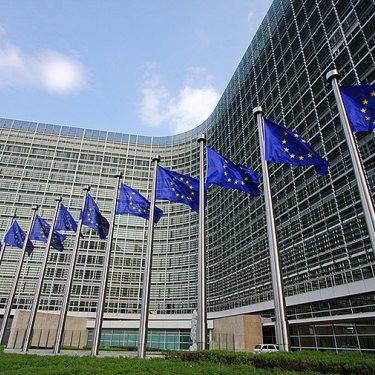Progress for press freedom in new European Commission, but concerns as well

Reporters Without Borders (RSF) hails the appointment of a European Commission vice-president with responsibilities that include press freedom, but is disturbed that Hungarian Prime Minister Viktor Orbán’s former justice minister has been named as commissioner for enlargement. The European Parliament must block this appointment, RSF says.
In the proposed new European Commission that President-elect Ursula von der Leyen unveiled on 10 September, the “Neighbourhood and Enlargement” portfolio has been assigned to the commissioner designated by Hungary, Orbán’s former justice minister László Trócsányi.
“How are we to believe that László Trócsányi will ensure respect for the rule of law, press freedom and media pluralism in candidate countries when he has been the architect of the illiberal regression in his own country?” asked Julie Majerczak, RSF’s representative to the European institutions. “This choice raises questions about the Commission’s determination to promote the rule of law, human rights and press freedom within the EU and in third countries.”
RSF urges members of the European Parliament to prevent this portfolio from given to the Hungarian commissioner. Each commissioner is due to appear before MEPs at the end of the month.
RSF nonetheless welcomes the fact that the freedom to inform and related issues are at the heart of the responsibilities assigned to Věra Jourová, the future European Commission vice-president for values and transparency.
In her “mission letter” to Jourová, Von der Leyen voices her desire to give a new impetus to European democracy and says Jourová’s leading priorities will include combatting disinformation and defending media pluralism.
“The prioritization of press freedom and media pluralism by the Commission’s future president is a positive signal,” Majerczak said. “During the campaign for the European elections, RSF proposed 10 ways for the EU to prioritize the defence of freely and independently reported news and information during the next five years. We now hope that this promising start, seen in the new Commission’s architecture, is translated into concrete actions. We will be paying close attention.”
Jourová, the Czech Republic-designated commissioner to whom the values and transparency portfolio has been assigned, is commissioner for justice in the outgoing Commission headed by Jean-Claude Juncker, whose term will end on 31 October. RSF urges her to demonstrate the same independence and integrity in her future role as she has in her current post.
To defend media freedom, independence and pluralism in a continent in which abuses against journalists are on the rise, RSF calls for a periodic review of respect for press freedom in all EU member countries on the basis of an independent report that can lead to country-by-country recommendations and to sanctions in the event of serious violations.
When fundamental rights are violated, and especially in cases of violence against journalists, RSF proposes that NGOs and press freedom defenders should be able to urgently contact the European Commission and ask it to quickly intercede with the relevant national authorities.
To combat the fake news phenomenon, RSF believes that the priority should be placed on the reliability of online content rather than on repressive policies that are hard to implement and pose a threat to free speech. In this regard, RSF urges the EU to recognize and support the Journalism Trust Initiative, which makes it easier to identify reliable news and information by means of a series of indicators measuring media transparency, editorial independence, the use of journalistic methods and respect for journalistic ethics.
In order to better protect the online information and communication space from the threat of trolls, those online mercenaries created by authoritarian regimes, and from the accelerating spread of false information, RSF urges European countries to quickly join the ”Information and Democracy” initiative that RSF launched in November 2018 and which is already backed by some 20 democratic countries.
RSF also calls for the creation of new legislation that makes online platforms accountable for any failure to fulfil their obligation as regards the violations of freedom of opinion and expression that are rampant online.
Finally, RSF proposes that the EU should give itself the means to impose targeted, individual sanctions on those responsible for serious violations of press freedom and journalists’ safety in third countries, in line with the “Magnitsky” mechanism in effect in the United States.
RSF urges MEPs to raise these issues with the commissioners-designate when they appear before the European Parliament at the end of the month, especially with Jourová and with Margrethe Vestager (digital affairs and competition), Didier Reynders (justice), Sylvie Goulard (digital single market), and Josep Borrell (foreign policy and security policy).
After the hearings of the individual commissioners-designate, the European Parliament must approve the entire college of commissioners in a plenary session vote scheduled for 23 October.
- Europe - Central Asia
- Netherlands
- Hungary
- Malta
- Lithuania
- Luxembourg
- Poland
- Latvia
- Croatia
- Cyprus
- Finland
- France
- Sweden
- Slovenia
- Slovakia
- Romania
- Denmark
- Czechia
- Portugal
- Bulgaria
- Belgium
- Ireland
- Italy
- United Kingdom
- Austria
- Estonia
- Spain
- Germany
- International laws and governance
- Violence against journalists
- Legal framework and justice system
- Independence and pluralism
- News



